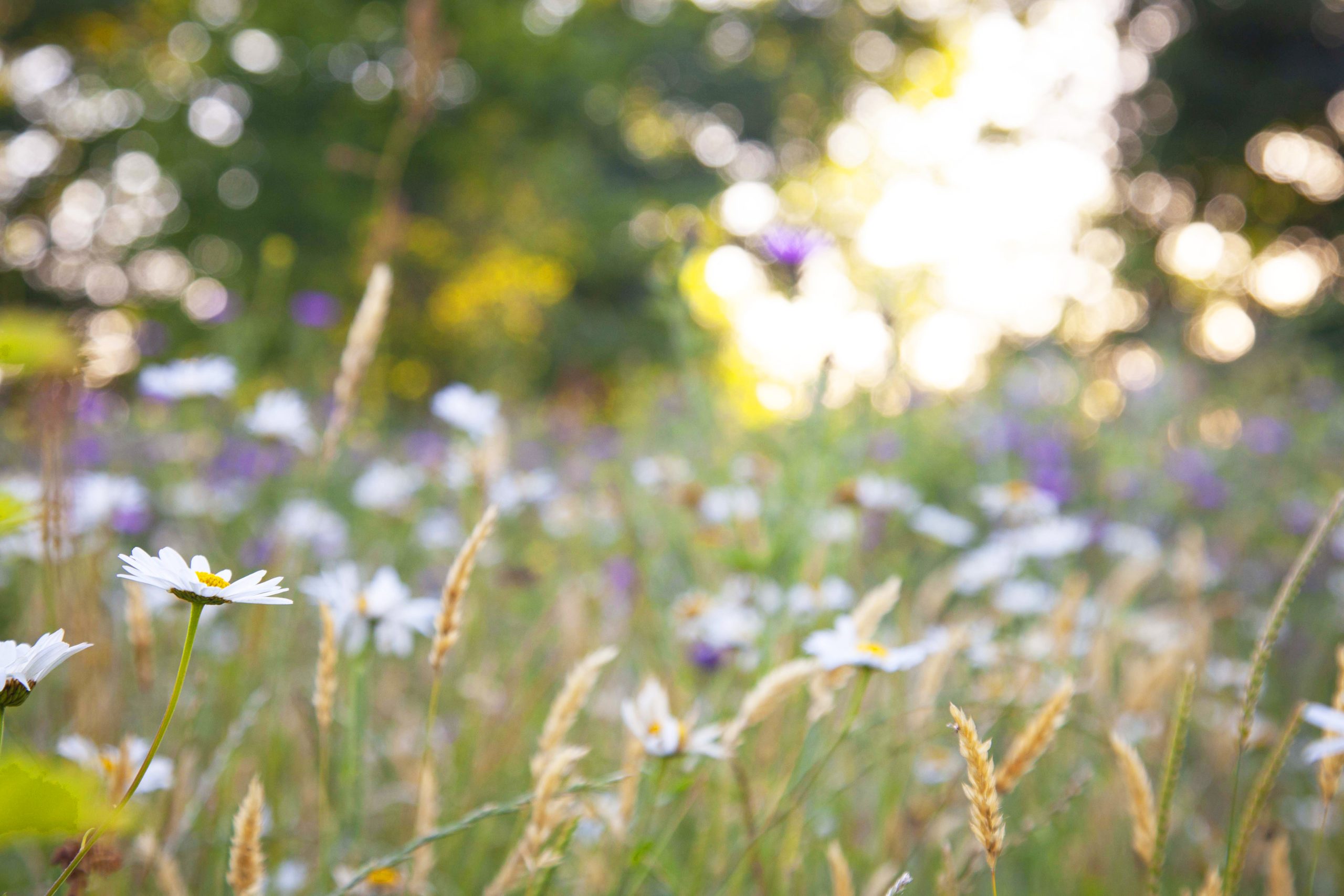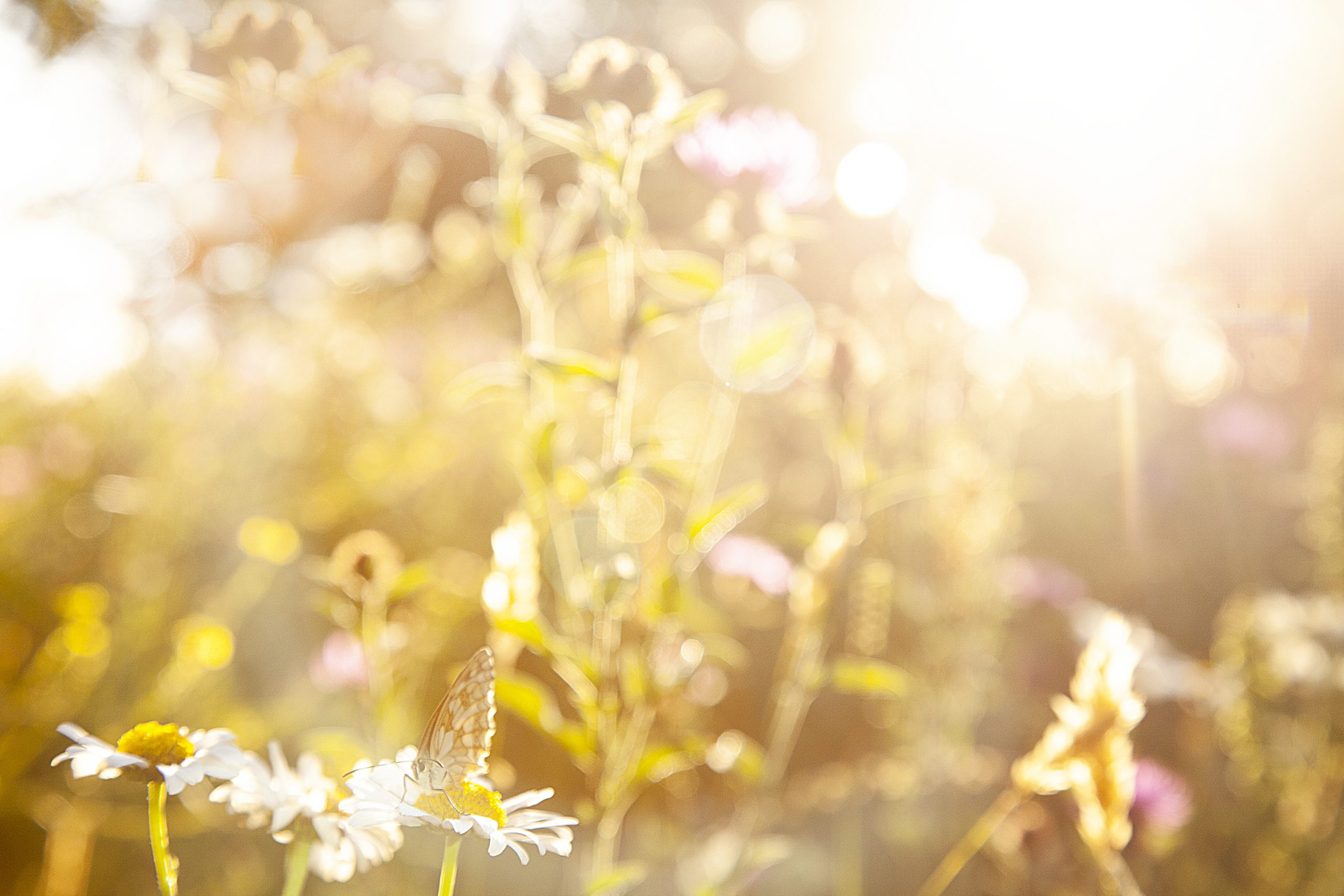Poets’ Corner, our seasonal cask ale
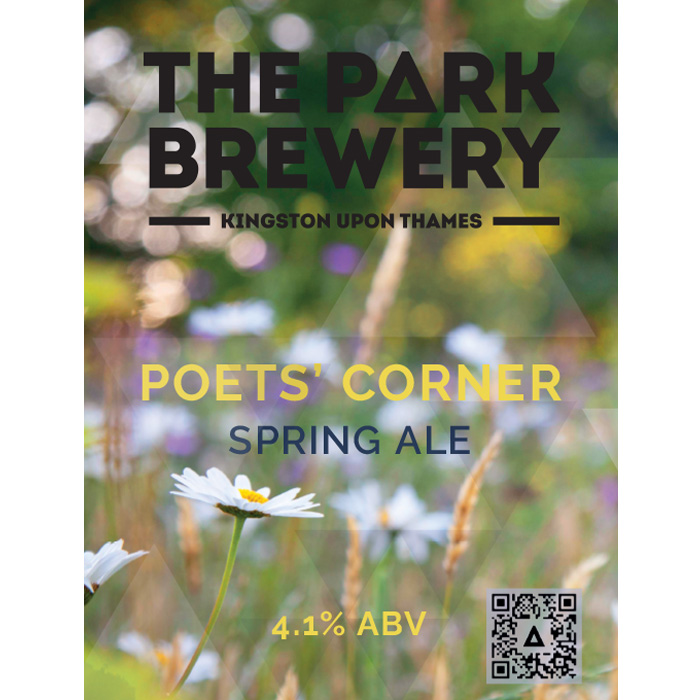
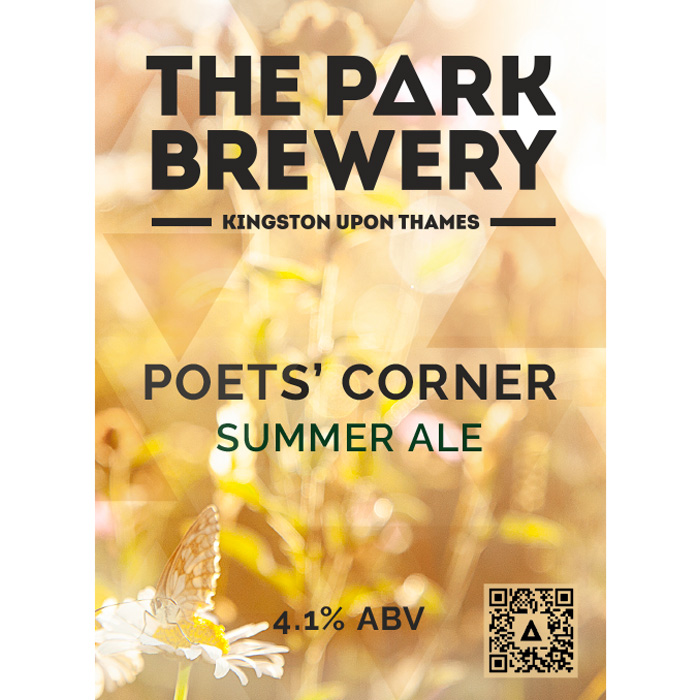
Spring – Gently hopped spring ale. A simple grain bill of lager malt and flaked maize creates a light and sweet body and a bready finish.
Summer – Super pale, easy drinking, low bitterness and slightly fruity showcasing the hop Huell Melon.
Buy boxes on our webshop or visit the brewery to have a pint at the tap room.
Poets' Corner
Poets’ Corner is an area in Pembroke Lodge Gardens commemorating the poet James Thomson (1700-1748). A plaque with an ode to Thomson by John Heeneage Jesse was installed near Pembroke Lodge stables in 1851. The current board was installed in 1895 and was repaired for the bicentenary of Thomson’s death, 27th August 1948. It was refurbished by the Selbourne Society, Britain’s oldest conservation organisation. Although originally Poets’ Corner was dedicated solely to Thomson, who spent the last years of his life in Richmond, over the years it has developed to incorporate the memory of other poets. This explains why it should now be called Poets’ Corner.
James Thomson and Richmond Park
James Thomson was born in Ednam, Roxburghshire, and enrolled at the College of Edinburgh in 1715 destined for a Presbyterian ministry. Whilst at college, Thomson joined the Grotesque Club, a literary group with whom he began writing poetry. Having moved to London in 1725 in order to further his poetry career, in May 1736 Thomson moved into a cottage on Kew Foot Lane in Richmond. In 1739 he moved to a larger cottage on the same road where he spent the rest of his life, enjoying long walks in the area and having his garden tended by his nephews Thomas and Gilbert Thomson.
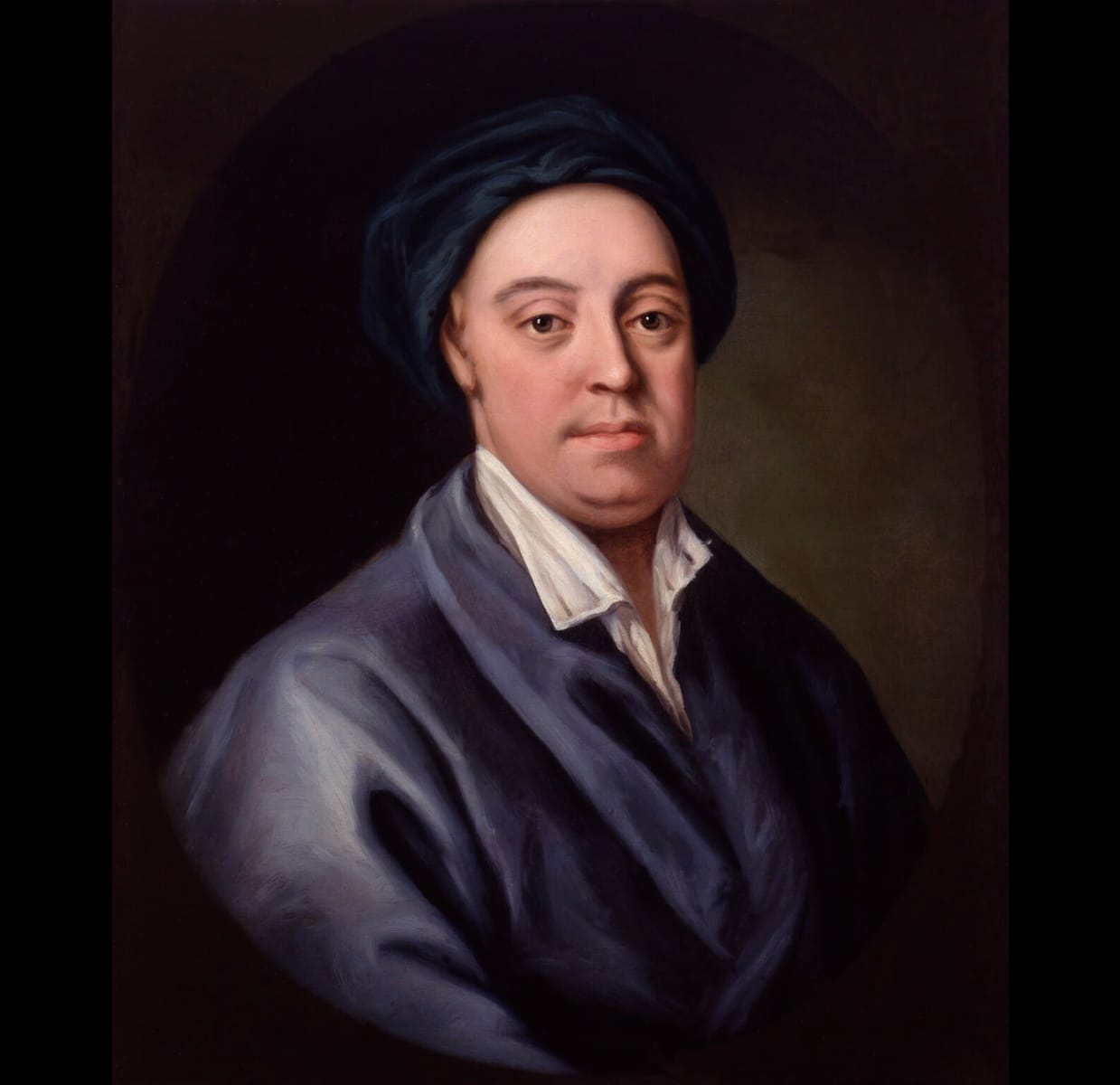
James Thomson, painted by John Patoun, c.1746
Kew Foot Road, as it is now known, is probably the oldest path in Kew, with its name deriving from the fact the path connected Richmond to the Kew Ferry. Thomson died after catching a chill in August 1748 whilst on a boat-trip from Hammersmith to Kew. He was buried near the font of the Church of St Mary Magdalene, Richmond. The Earl of Buchan erected a brass tablet in the church to Thomson’s memory in 1792. Thomson’s most famous works include “The Seasons” and the words for “Rule, Britannia!”. Whilst in Richmond Thomson composed his final poem “The Castle of Indolence” which was published just before his death in 1748.
A bench known as Poet’s Seat was sculpted in 1994 by Richard Farrington and was inscribed with the line “So let us trace the Matchless Vale of Thames” from Thomson’s poem The Seasons, an elegant exploration of nature. The shape of the bench was inspired by the meandering of the Thames at Kew. In 2014, Poets’ Corner was relocated and refurbished and the ode to Thomson by John Heeneage Jesse was re-gilded and set in a new oak frame. Three benches were also added in 2014 which were made from reclaimed teak and were inscribed with lines from the Welsh poet W. H. Davies.
W. H. Davies

W. H. Davies in 1913.
William Henry Davies was a Welsh poet born in Newport in 1871. After a tough upbringing, Davies seemingly lived a quite remarkable period of his life from 1893-1899 which he recounts in “The Autobiography of a Super-Tramp”. Davies’ travels as a drifter saw him cross the Atlantic Ocean seven times on cattle-ships; he passed the winter in Michigan by agreeing to be locked in a series of prisons where he played cards and drank with fellow drifters; and he spent three days and nights lying in a swamp in Memphis suffering from Malaria. The moment in Davies’ travels that has been argued to have changed him the most occurred when he was seeking his fortune in the Klondikes in Canada. Attempting to jump a freight train in Renfrew, Ontario with his companion, Three-fingered Jack, Davies slipped and had his right leg crushed under the train. The leg was amputated below the knee and he spent the rest of his life with a prosthetic wooden leg.
Davies returned to London in 1900. He seemingly continued to live a rough life in doss houses and hostels. He came to despise these establishments, especially The Ark run by the Salvation Army in Southwark. Eventually Davies met literary critic Edward Thomas in 1905, who saw great potential in the poet and moved him to a cottage near his home in Sevenoaks. Through Thomas’ patronage, he fell in with the literary circles of London and eventually moved to Great Russell Street in 1914. Davies died in 1940 at his final home, called Glendower in the hamlet of Watledge near Stroud. Davies most famous works include the poem Leisure originally published in 1911 and the book The Autobiography of a Super-Tramp, published in 1908.
Much like James Thomson, W. H. Davies was foremost a poet of nature and the inclusion of some of his poetry in Richmond Park is certainly apt. Following the renovation of Poets’ Corner in 2014 the three curved benches dedicated to W. H. Davies was inscribed with a couplet from his poem Leisure,
“A poor life this, if, full of care, we have no time to stand and stare”
Ian Dury

Painting by Ian Dury
H. Davies is not the only person who has a bench in Poets’ Corner. Ian Dury, 1942-2000, was a talented artist and lyrical poet. Dury attended Walthamstow College of Art and the Royal College of Art, taking part in an exhibition at the Institute of Contemporary Arts. His lyrical poetry speaks for itself. The funky rock ‘n’ roll is interspersed with a humour and wit that is unique.
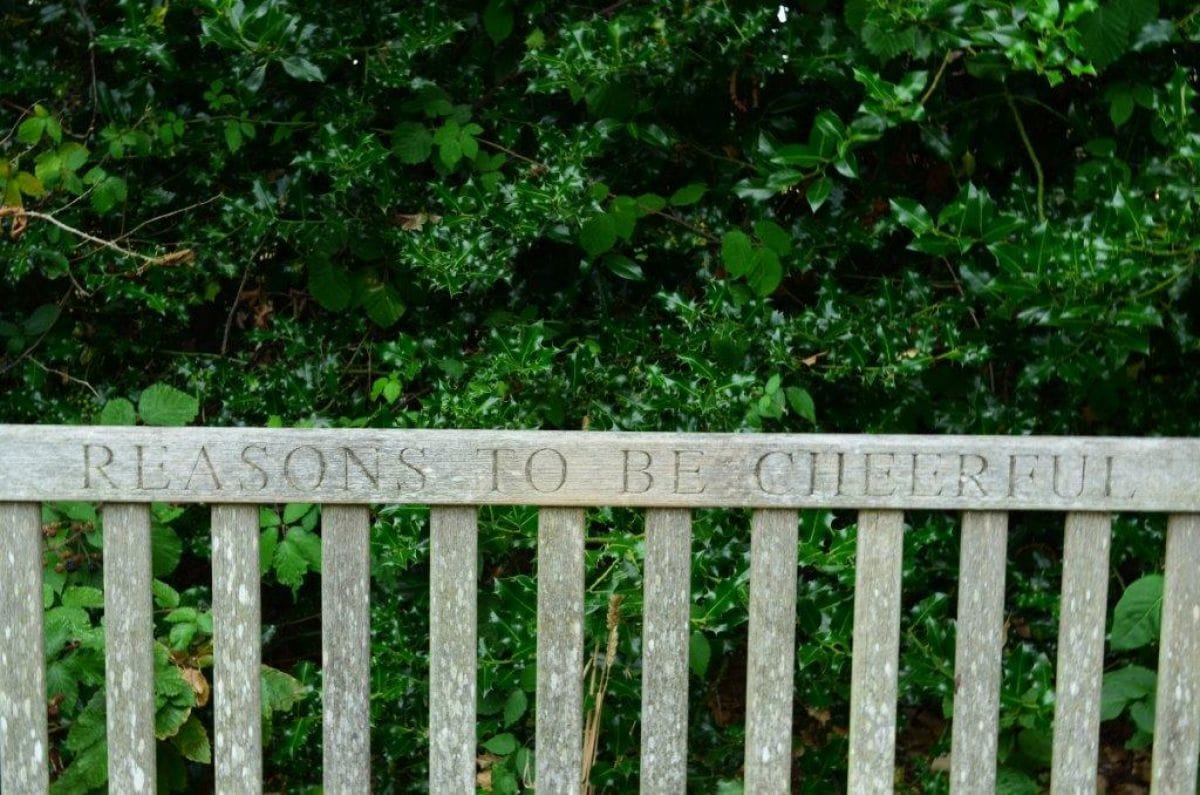
The Ian Dury bench in Poet’s Corner was donated by Ian’s family in 2002, following his death in 2000. Jemima Dury, speaking at the unveiling of the bench, said that her father used to enjoy visiting Richmond Park a few times a week as he was able to enjoy relative anonymity within the park. Originally the bench featured a solar-powered MP3 player through which you could listen to 9 of his songs as well as his Desert Island Discs episode from 1996. Following some vandalism and general wear and tear, the MP3 player was replaced by a plaque featuring a QR code which linked to the same material. You can even listen to those whilst enjoying a pint of Poets’ Corner…
